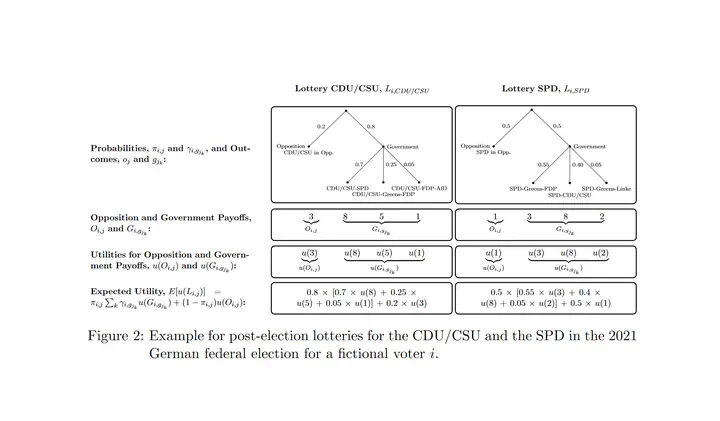Coalition-Directed Voting as a Lottery

Abstract
When voters support parties in multi-party democracies, it is often uncertain what coalition government the party is likely to join. How do voters deal with this type of uncertainty? In this paper, we use a conceptual analogy between coalition-directed voting and participating in a lottery to develop a novel conceptualization of coalition- directed voting. We present observational and experimental evidence that supports the idea that voters are risk-averse when considering coalition government options. The perception of uncertain coalition prospects of a party negatively affects the propensity to vote for parties, even when holding the expected coalition government payoffs constant. In a survey vignette experiment during the 2021 German federal election, we find that uncertain coalition prospects reduce the propensity to support a party, compared to certain coalition prospects with the same expected coalition government payoffs. The findings provide important insights for research on strategic voting theories and parties’ coalition strategies.